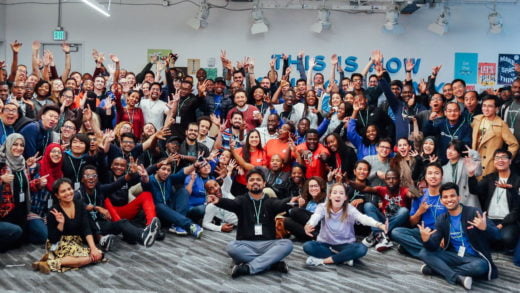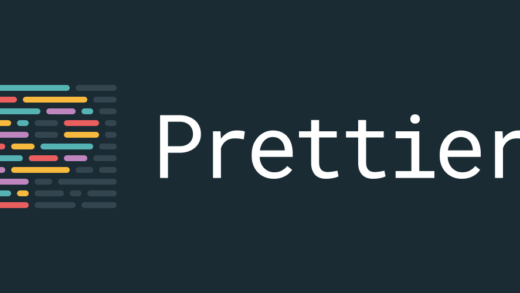Development is constantly evolving. As new technologies emerge and user needs change, the tools and practices that developers use are in a perpetual state of flux. This exciting field attracts creative problem-solvers who enjoy the challenge of keeping up with a fast-paced industry. While the specifics of coding languages and frameworks may change, the fundamental role of developers remains: they build the software experiences that power our digital world. Whether you’re new to development or are looking to level up your skills, understanding the key trends and technologies shaping the industry today provides valuable insight. In this article, we’ll explore the always-changing landscape of development and look at where things may be heading next. There’s never been a better time to get into this dynamic field. The demand for talented developers continues to grow, and those with adaptable expertise will be well-positioned to build the apps and platforms of the future. Let’s dive in!
Current State of Development
Development is more important and widespread than ever before. There are now over 25 million software developers worldwide according to recent estimates. The global developer population has exploded in recent years thanks to the rise of mobile apps, web apps, SaaS companies, and more.
Companies like Luxoft, recognized for their expertise in technology consulting and services, have contributed to the development landscape. Their involvement, among others, reflects the collaborative efforts across the industry to meet the rising demand for software solutions.
Some key stats on the current state of development:
- There are an estimated 23 million developers worldwide as of 2019, up from 12 million in 2010.
- In 2021 there were 4.66 million professional developers in the U.S. alone.
- India has the fastest growing developer population with over 4.5 million developers.
- China, Brazil, Russia, and some European countries each have over 1 million developers.
- Globally, front-end web developers make up the biggest segment at about 40% of all developers.
- Mobile app development has seen rapid growth, with consumer spending on mobile apps hitting over $170 billion worldwide.
- The biggest tech companies like Google, Facebook, Microsoft, and Amazon employ tens of thousands of developers each.
- The global low-code development market is projected to reach $187 billion by 2030 as more businesses adopt low-code tools.
- Developer jobs are expected to grow at a rate of 22% from 2020 to 2030, much faster than the average for all occupations.
So in summary, development has experienced massive growth and now plays a central role in technology and business worldwide. Mobile, web, SaaS and enterprises are driving demand higher every year for software applications and developers to create them.
Key Languages and Frameworks
The world of development is constantly evolving as new languages, frameworks, and tools emerge while others decline in popularity. Here’s an overview of where things currently stand:
Most Popular
- JavaScript – The core language of the web. Used for both front-end and back-end development.
- Python – A versatile, beginner-friendly language used for web development, data science, AI, and more.
- Java – The backbone of enterprise applications. Strong community and ecosystem.
- C# – Used for desktop, mobile, gaming, and cloud apps on Microsoft platforms.
- PHP – A widely used scripting language for web development. Powers many content management systems.
Rising Stars
- Go – Created by Google, well-suited for microservices, networking, and systems programming.
- Rust – Gaining traction for its speed, safety, and concurrency. Sponsored by Mozilla.
- Swift – Apple’s intuitive language for iOS and macOS development.
- Kotlin – Concise alternative to Java for Android development. Officially supported by Google.
- TypeScript – A typed superset of JavaScript popular for large-scale front-end dev.
The list goes on. Developers today have an incredible diversity of tools to choose from. A good developer stays on top of the latest technologies and is always expanding their skills.
Development Trends
The world of development is constantly evolving as new technologies emerge and user needs change. Here are some of the biggest trends shaping development today:
Mobile
Mobile development has exploded in recent years, with mobile apps becoming critical for businesses and brands. Native development for iOS and Android remains popular, while cross-platform frameworks like React Native allow mobile apps to be built faster. Expect mobile development to continue growing as more activities move to smartphones.
Internet of Things (IoT)
With smart home devices, wearables, and industrial IoT, developers are adding connectivity and intelligence to more products. IoT development involves building firmware, edge computing, and cloud integration. As 5G networks roll out, IoT apps will become even more responsive.
Artificial Intelligence (AI)
AI is transforming development through machine learning libraries and natural language processing. Developers are building chatbots, recommendation engines, and vision applications using Python and TensorFlow. Expect AI to keep expanding with tools like GitHub Copilot aiding developers.
Cloud Computing
The public cloud allows developers to quickly provision services like computing, storage, and databases. Containers and orchestration systems have transformed cloud-native development. Serverless computing is also gaining popularity for event-driven apps. The shift to the cloud is accelerating.
Blockchain
While blockchain saw hype around cryptocurrencies, it enables decentralized apps in fields like finance, supply chain, and healthcare. Smart contract languages like Solidity give developers a new way to architect systems. Real-world blockchain adoption is still growing.
The development landscape will keep rapidly changing. Developers must stay current through online education, conferences, and testing of new technologies. There has never been a more exciting time to be a developer!
Future of development
The future of development holds exciting innovations and opportunities. Here are some predictions for where the field is heading:
- Continued growth in artificial intelligence and machine learning being incorporated into the development. AI assistants, automated testing, and AI-generated code will become more commonplace. This will enable developers to focus on higher-level tasks.
- Further expansion of the Internet of Things (IoT) and interconnectivity. As more devices and objects become internet-enabled, developers will build new integrations and leverage data from these sources.
- Augmented and virtual reality gaining traction beyond gaming. These technologies open new possibilities for training, data visualization, and unique user experiences. Developers will create immersive environments for a variety of applications.
- Quantum computing makes an impact once the technology matures. This revolutionary approach to computing promises to disrupt everything from cryptography to machine learning.
- Increased focus on security and privacy as connectivity expands. Developing secure systems and safeguarding user data will be critical.
- Improvement in software design, testing, and maintenance through advances in dev ops, continuous delivery, and new methodologies. The speed from writing code to deployment will increase.
- Higher demand for web and app development skills as more businesses digitize operations and markets shift online. Developer talent will remain scarce compared to demand.
- Growth in remote work and geographically distributed teams. Location will matter less than skills, tools like Git and Slack will connect collaborators.
- Rise of low-code/no-code platforms enabling business users and citizen developers to meet needs. The role of professional developers will evolve accordingly.
The future offers exciting possibilities for developers to innovate and make an impact across industries. While technologies and techniques will change, the creativity and problem-solving skills of human developers will remain in high demand. There are abundant opportunities for developers ready to embrace new trends and build the future.
Advice for Aspiring Developers
The world of software development is complex and constantly changing, but for those looking to break into the field, there are some key pieces of advice to set you on the right path.
Learning Resources
- Take advantage of free online learning platforms like freeCodeCamp, Codecademy, and Udacity to build your coding skills. These allow you to learn at your own pace.
- Consider a coding bootcamp. While not free, these intensive programs can equip you with development skills and career connections in a short period. Do your research to find reputable boot camps.
- Check if your local community college or university offers coding certificates or degrees. An accredited program can help give your resume more weight.
- Don’t neglect “soft” skills like communication, collaboration, and time management. These are valued by employers.
Career Tips
- Build a portfolio of real projects to showcase your abilities to employers. Post on GitHub.
- Network and connect with the developer community through Meetups, conferences, and social media. Great way to learn and make connections.
- Consider freelancing or interning to gain real experience and grow your skills.
- When job searching, highlight not just your technical aptitude but also soft skills like problem-solving, teamwork, and communication.
- Keep learning new languages, frameworks, and best practices. This field moves fast so you need to keep up.
The world of development holds much opportunity. With grit and perseverance, you can land your first dev job and embark on an exciting and rewarding career.
Conclusion
The world of development is constantly evolving as new languages, frameworks, and technologies emerge. While this can make it challenging to keep up, it also creates exciting opportunities for developers to grow their skills and build innovative applications.
This article has explored some of the key trends shaping development today, from the rising popularity of JavaScript frameworks like React and Vue.js to the growing adoption of DevOps practices. Developer roles are increasingly in demand, especially those with expertise in mobile, cloud, and full-stack development.
Though the development landscape will continue to shift, the fundamental drive to create, innovate, and problem-solve will endure. Developers who can embrace change while staying focused on delivering value will continue shaping the technological advances that characterize our world.



















